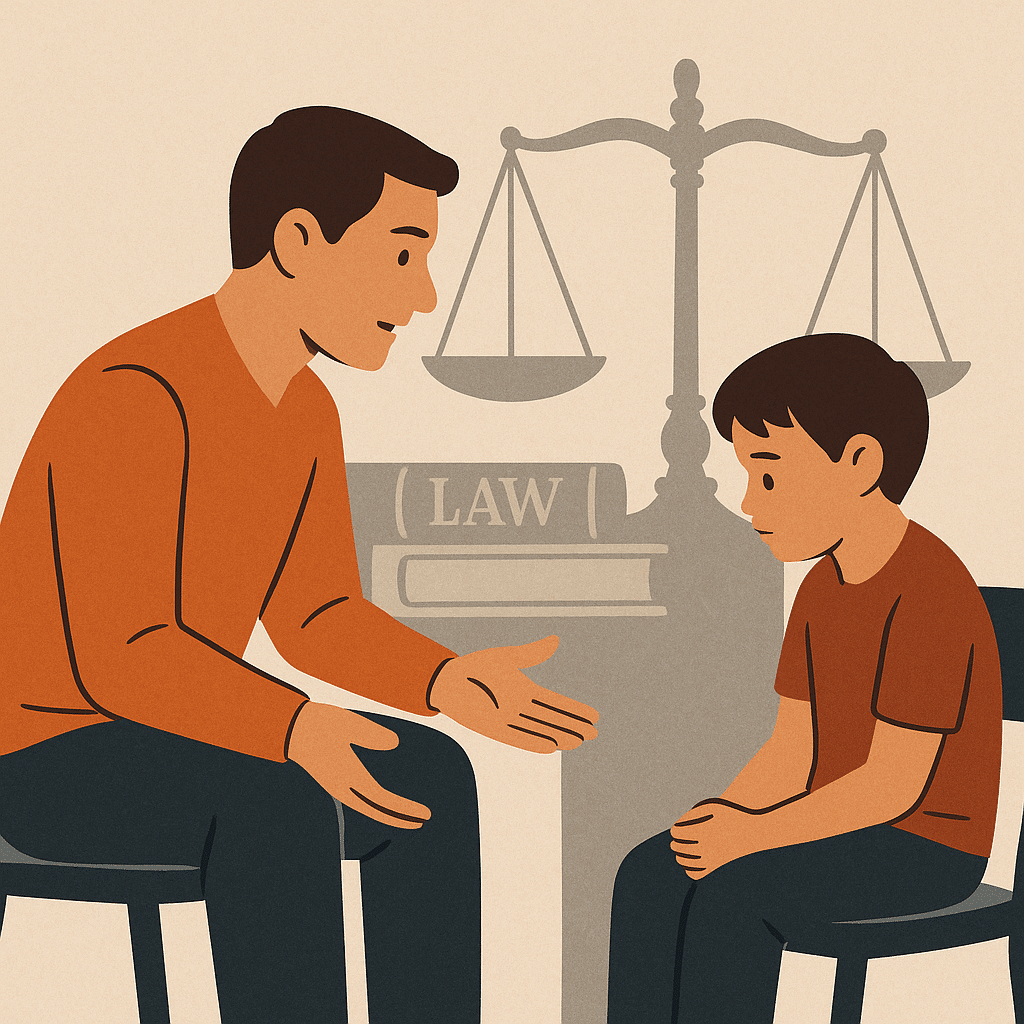
When does discipline cross the line into abuse? That question lies at the heart of many criminal investigations involving parents in Maryland. While the law recognizes a parent’s right to discipline their child, there are clear limits. If you’re facing criminal charges related to child discipline, it’s important to understand how Maryland law treats these cases—and how the “parental discipline defense” may apply.
In this post, we break down what the law allows, what it prohibits, and how courts evaluate whether a parent’s actions were reasonable or crossed into criminal territory.
Is Parental Discipline Legal in Maryland?
Yes, Maryland law does allow parents to use physical discipline—but only within strict boundaries. Under Maryland’s criminal code and case law, physical punishment by a parent is not automatically considered child abuse. The key factor is whether the discipline was reasonable under the circumstances.
Maryland’s courts recognized that reasonable corporal punishment, such as spanking, does not constitute abuse. However, if the discipline results in serious physical injury or is deemed excessive, it can trigger criminal charges such as:
- Second-degree child abuse (felony)
- Second-degree assault (misdemeanor)
- Neglect of a minor
Each of these charges carries serious penalties—including possible jail time, loss of custody, and long-term consequences for your record and reputation.
What Is the “Parental Discipline Defense”?
The parental discipline defense is a legal argument that allows a parent or guardian to justify their physical discipline as lawful. Maryland law doesn’t provide a specific statute labeled “parental discipline defense,” but courts have long recognized it as a common law defense.
To succeed with this defense, the parent must prove that:
- They were the legal parent or guardian of the child;
- The purpose of the discipline was to correct or control the child’s behavior;
- The method used was reasonable and not excessive under the circumstances.
This defense does not excuse intentional cruelty, use of dangerous objects, or punishments that cause injury. The court evaluates each case based on context, including:
- The child’s age and vulnerability
- The method and degree of force used
- Whether there were visible injuries
- Past history of discipline or abuse
If the discipline goes beyond what society considers acceptable, the defense may fail.
How Do Maryland Courts Determine What Is “Reasonable”?
Maryland courts look at reasonableness from the perspective of both parental authority and child safety. There is no one-size-fits-all rule. Instead, prosecutors, judges, and juries weigh a variety of factors.
For example:
- A light spanking on the child’s clothed bottom may be seen as reasonable.
- Striking a child with a belt, especially if it leaves marks or bruises, may be deemed excessive.
- Using objects like cords, pipes, or closed fists is likely to be considered abusive.
Medical records, photos of injuries, and witness statements often play a major role in determining whether the force used was appropriate.
Can Parents Be Arrested or Charged Without Obvious Injuries?
Yes. Even if a child has no visible injuries, a parent can still be charged with assault or abuse if the discipline is considered excessive or emotionally harmful. In many cases, the child’s report alone can lead to charges, especially if supported by teacher observations, social worker reports, or prior concerns from Child Protective Services (CPS).
Maryland law prioritizes the safety of children. Once a report is made, CPS and law enforcement often act quickly—even if the situation is later found to be a misunderstanding.
What Happens If CPS Gets Involved?
If Child Protective Services opens an investigation, they may conduct interviews, examine the home environment, and request access to the child’s medical and school records. Their findings can result in:
- No action, if the discipline is deemed reasonable
- An informal service plan, requiring parenting classes or monitoring
- Court involvement, including removal of the child from the home
- Referrals for criminal prosecution
Even if criminal charges aren’t filed, a parent can still be listed on the Maryland Child Abuse Registry, which can affect employment and custody rights.
What Should You Do If You’ve Been Accused?
If you’ve been accused of child abuse or arrested for disciplining your child, you need an experienced criminal defense lawyer who understands both the law and the human dynamics at play.
At Southern Maryland Criminal Defense, we have represented numerous parents in Charles County, St. Mary’s County, Prince George’s County, and Calvert County who were wrongly charged or misunderstood by CPS. We can help you assert the parental discipline defense when it applies—and protect your rights, your record, and your relationship with your child.
Key Takeaways
- Maryland allows physical discipline, but only if it’s reasonable and not excessive.
- The parental discipline defense may justify actions taken to correct a child’s behavior.
- Courts consider factors like injury, age of the child, and severity of force.
- CPS and law enforcement take all reports seriously—even without visible harm.
- Legal counsel is critical when facing accusations related to child discipline.
Facing charges related to child discipline? Don’t face it alone.
Call Southern Maryland Criminal Defense today or request a confidential consultation online. We understand the law—and we fight for parents.
